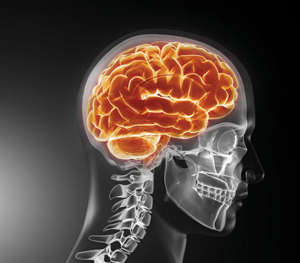
The United States Centers for Disease Control and Prevention reports that an estimated 1.5 million people across the nation sustain a traumatic brain injury (TBI) each year. Approximately 5.3 million people struggle with TBI-related disabilities in the U.S. If you have been injured, contact our Lakeland Brain Injury Lawyer.
Annually, 85,000 people receive long-term injuries that lead to disabilities, while the nation records 50,000 fatalities due to brain trauma each year. Lakeland brain injury lawyer Tania Rivas handles cases involving various types of head trauma, including severe brain injuries.
Definition of a Brain Injury
A brain injury or TBI happens as a result of a bump, hit or blow to the head, whether or not penetrating, which upsets normal brain activity. These range from mild and short-lived, usually labeled as concussions, to severe and long-lasting effects, including permanent brain damage.
A Statistical Overview – A Large Increase in TBIs
The big picture shows a significant increase in TBIs from 2001 to 2010. For example, emergency room visits skyrocketed from 420.6 per 100,000 in 2001 to 715.7 in 2010. Likewise, the number of hospitalizations climbed, although deaths slightly decreased. Overall, total injuries stood at 521.0 per 100,000 in 2001 and 823.7 per 100,000 in 2010. However, although the number of ER visits significantly escalated, the number of fatalities actually dropped by 7 percent. Sports-related head trauma accounted for 248,418 of the injuries for those 19 and younger in 2009, an increase of 57 percent since 2001.
After an emergency room visit, the following outcomes occur:
- 52,000 fatalities
- 280,000 hospitalizations and
- 2.2 million people treated and released.
Since some people did not seek medical help after a brain trauma, exact numbers of TBIs remain unclear.
Causes of Traumatic Brain Injuries
Below are the top three causes of a TBI.
- Car Accidents – Brain injuries suffered in a vehicular accident or through other means cause numerous permanent disabilities and often result in fatalities across the nation.
- Firearms – One of the most dangerous types of head trauma — firearm-related TBI – claims the lives of 90 percent of those injured.
- Falls – Falls cause just over 40 percent of all head injuries and significantly affect the elderly and the very young. For example, falls resulted in 55 percent of TBIs for children between the ages of zero and 14 between 2006 and 2010. On the other end of the spectrum, falls caused TBIs in 81 percent of those 65 and older.
Head injury victims sometimes suffer from spinal cord injuries after these incidents as well. Experts agree that preventing TBIs helps the most people, since TBIs cannot be cured. Estimates place traumatic brain injuries (TBIs) as the cause of 30 percent of all deaths. In addition, 138 people in the country pass away each day as a result of TBIs.
Some brain injuries, which can last for a few days to a lifetime, cause brief memory loss, impaired motor skills, vision or hearing loss and even personality changes. In addition to affecting the victim, families deal with the repercussions of head injuries as well. Our injury attorney in Lakeland has handled numerous cases related to negligence or intentional incidents after a head injury.
Additional causes of head trauma include:
- Unknown/other
- Vehicular accidents
- Blows or bumps to the head and
- Assaults.
Increased Risk Factors for TBI
The following risk factors increase a person’s chances for injury and death from a TBI:
- Men die three times as often as women from TBIs.
- Individuals 65 and older died most often from TBIs, with falls the main cause of fatalities.
- Children from zero to four suffered fatalities most often from assaults.
- Vehicular accidents caused the most deaths for younger people between the ages of five and 24.
Similarly, the following groups see more emergency room visits for brain injuries: men; those over 65; and children between the ages of zero and four, with falls as the leading reason for nearly all injuries. However, Lakeland brain injury lawyer Tania Rivas notes that hospitalizations as a result of TBIs suffered in vehicular accidents most often occur in individuals between the ages of 15 and 44.
Brain Injury FAQs
Are There Red Flags I Should Look Out For After I Hit My Head in an Accident?
How do you know if you’re suffering from a TBI? The symptoms aren’t always obvious, but there are typically some tell-tale signs, even in mild TBI cases. Here are some red flags you should look out for after any accident in which you hit your head.
How Much Compensation Will I Get From My Personal Injury Case?
Unfortunately, we can’t give you an exact answer. Despite what you may have heard, there is no “magic formula” for determining the amount of compensation a victim is owed for their injuries. Every personal injury case is unique, and there are a number of variables that will determine the final amount of your settlement. It would be irresponsible to get a client’s hopes up with unrealistic expectations.
Read the factors that can affect personal injury compensation and what you can be compensated for.
How Much Does It Cost To Hire A Personal Injury Attorney?
Personal injury lawyer fees can operate on contingency, retainer or hourly basis. At Rivas Law Group, our personal injury case fees are handled on a contingency basis. Unlike retainer fees, which are usually paid up front, contingency fees are not due until the case has been settled or won in court.
Specific Types of Brain Injuries
The most common types of brain injuries include:
- Penetration injuries. Caused by bullet wounds, knives or other objects that puncture the brain, these injuries often cause damage to just one part of the brain. Often called open-head injuries, these sometimes result in death.
- Closed-head injuries. These injuries happen after slip-and-falls or car accidents, causing focused or diffuse damage across the brain. Skull penetration does not occur. These widespread injuries affect a greater area of the brain than do open-head injuries. Our Lakeland brain injury law team frequently and sadly sees these types of injuries after car accidents.
- Diffuse axonal injury. Also called deceleration injuries, these happen when the head collides with an object. The brain tissue moves at varying speeds in the skull, causing brain swelling and contusions. Diffuse axonal shearing means that the brain is pounded back and forth inside the head as it is squeezed and stretched due to its soft texture. The neurons — nerve cells in the brain and spinal cord — also suffer the same fate. These tears then cause the neurons to die.
- Metabolic disorders. Usually caused by chemicals or toxins, substances such as lead, insecticides, carbon monoxide or solvents damage the neurons.
- Lack of oxygen. Also known as hypoxia, which means reduced oxygen, or anoxia, which means no oxygen, the brain suffers irreversible brain damage. Results of this damage might include a significant loss of memory or cognitive function. A drop in blood pressure, respiratory failure, a heart attack or an oxygen-depleted environment sometimes causes this condition.
- Tumors. Cancerous tumors sometimes grow on the brain, invade it and cause continued damage. Pressure from these tumors results in further damage. Although the patient might receive surgery to remove the tumors, the operation itself sometimes leads to further damage.
- Infections. Infections from viruses or bacteria, usually spread via the blood or open-head injuries, cause great danger if they enter the brain. Encephalitis or meningitis sometimes results.
- Strokes. Strokes occur due to a blockage of blood flow to the brain. If the blood flow is blocked long enough, cell death results due to oxygen deprivation.
- Hemorrhage or hematoma. Brain damage also occurs after bleeding in or over the brain from an artery tear or other blood flow loss.
Did Someone Else’s Negligence Cause Your Brain Injury? Get Help Now!
If you’ve suffered a brain injury as a result of someone else’s negligence, you may be entitled to compensation for your medical bills, lost wages, pain and suffering and more.
Lakeland brain injury lawyer Tania Rivas is dedicated to bringing you peace of mind in the worst of times. Contact Rivas Law Group for a free consultation today.



